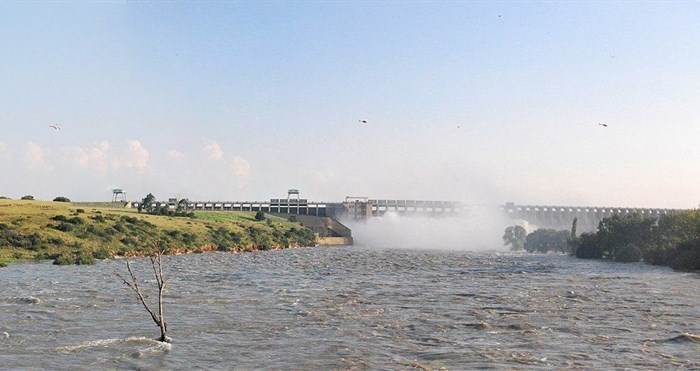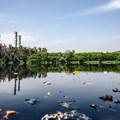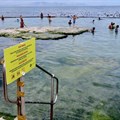The Department of Water and Sanitation says it is engaged in several initiatives aimed at addressing the pollution of rivers by municipal waste water treatment works.
This follows the 2022 Green Drop report which indicated that the performance of many municipal waste water treatment systems is deteriorating.
The report, which was recently released by the department, identified 334 wastewater systems in a critical state of performance in 90 municipalities.
“This means that many municipalities are discharging effluent from their waste water (sewage) treatment works which does not meet the specified treatment levels, which in turn is resulting in pollution of rivers,” the department said.
The department said it has noted AfriForum’s statement that it has expanded its scope of test sites on the Vaal River from the initial site in Ngwathe Local Municipality, with five more points downstream in Free State, Northern Cape and North West provinces and that test results have confirmed the presence of cholera bacteria.
Professor Anthony Turton 28 Mar 2022 Vaal pollution
The department acknowledged that Vaal River is one of the worst polluted rivers in South Africa.
It reiterated that the outbreak of cholera is caused either by people ingesting sewage-polluted water or by faecal-oral means - through poor hygiene, eating contaminated food, or by coming into contact with the faeces of an infected person.
“Sewage pollution of rivers can result in cholera bacteria entering the rivers via the faeces of an infected person or people,” the department explained.
It said it has been carrying out weekly tests for cholera in the Vaal River at the point in Ngwathe - where AfriForum tests initially indicated the presence of cholera bacteria - which was caused by a sewage-spilling manhole situated near the watercourse.
The sewage-spilling manhole has since been repaired.
“Departmental tests at the site have not yet identified cholera bacteria. However, this does not mean that the AfriForum tests were incorrect. Cholera-infected faeces can be present at a particular point in the river at a particular time but may later flow downstream. The department will conduct further tests downstream,” it said.
The department warned members of the public that rivers, dams, and streams contain raw or untreated water which is not suitable for human consumption.
Steve Kretzmann 13 Jan 2023 “We therefore urge members of the public to avoid consuming untreated water from such water bodies unless it is first disinfected. The National Institute for Communicable Diseases (NICD) has set out guidelines that should be followed regarding safe drinking water.
“Municipalities are required by law to carry out regular tests of treated drinking water before it is provided to communities.
“Drinking water provided by municipalities is safe to drink if municipalities are carrying out the tests as required, and if the tests show that the water meets the standards for drinking water that are set by the South African Bureau of Standards,” the department said.
Action plans
In a bid to address the pollution of rivers by municipal waste water treatment systems, Minister of Water and Sanitation Senzo Mchunu has agreed on action plans to address infrastructural deficiencies in many of the worst performing municipalities.
The department is also assisting municipalities with funding from the Water Services Infrastructure Grant (WSIG) and Regional Bulk Infrastructure Grant (RBIG) to address these deficiencies.
“Secondly, the department is taking regulatory action in terms of the National Water Act, including issuing non-compliance notices, directives, taking civil action, and as a last resort, laying criminal charges against polluting municipalities.
“Thirdly, the department is drafting amendments to the Water Services Act to strengthen its role as the regulator of municipal water and sanitation services and to enable the Minister to intervene effectively when there is non-compliance with directives to stop pollution,” the department said.








































